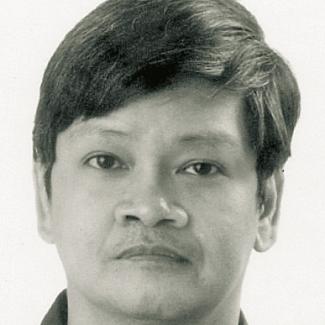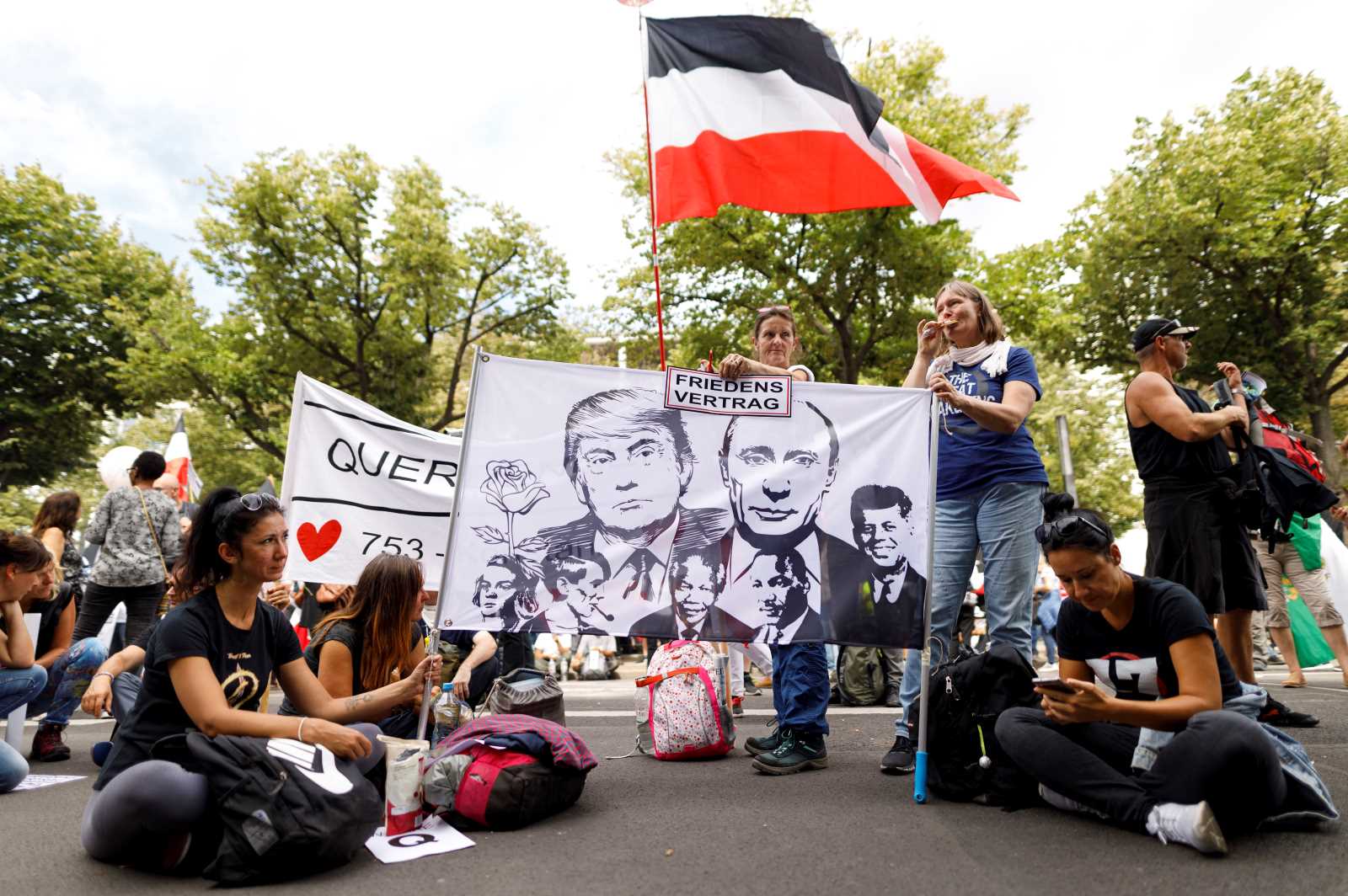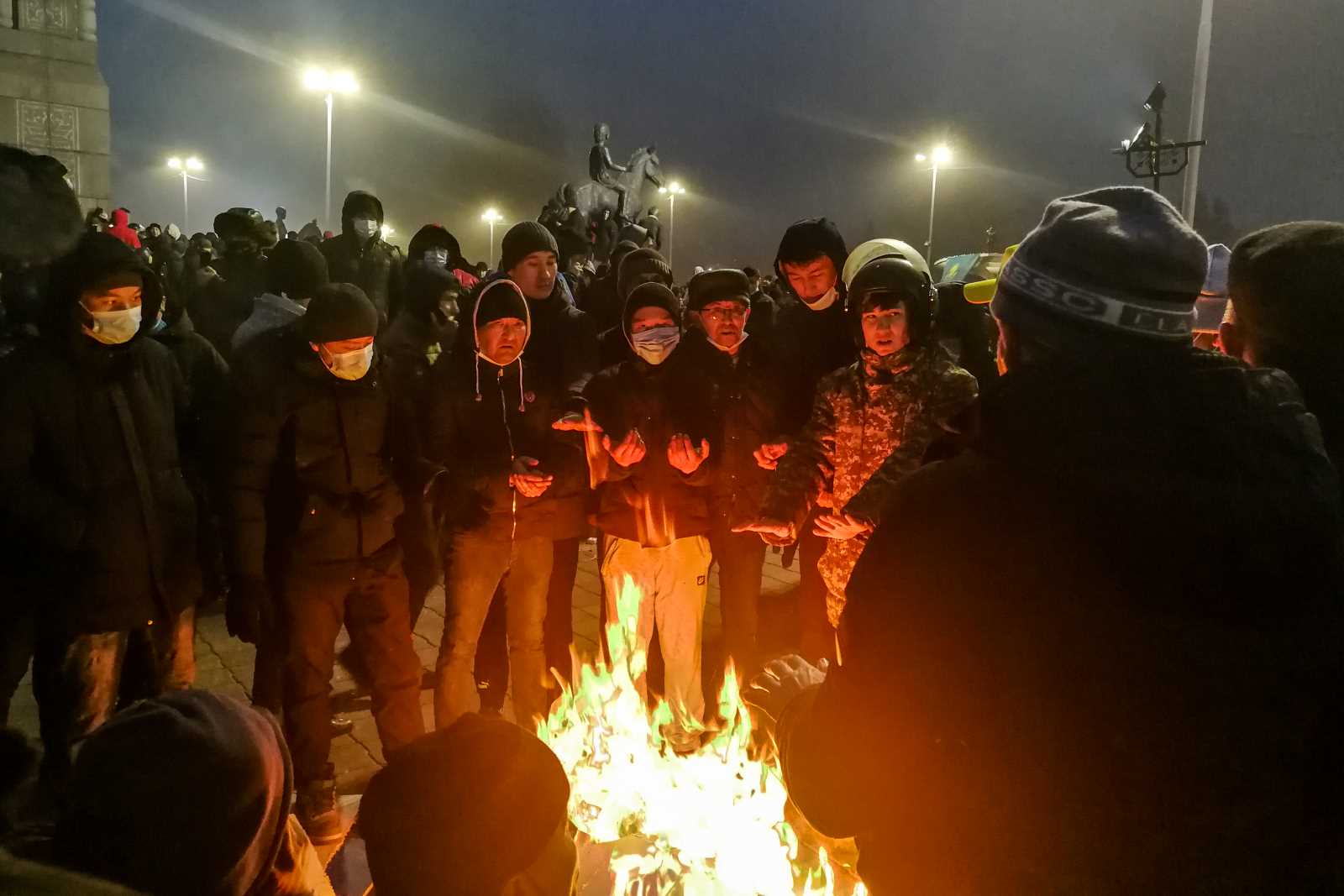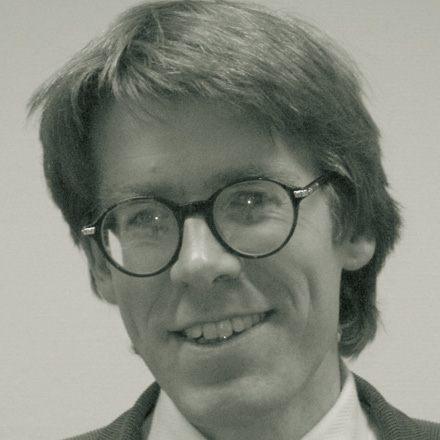Right-wing authoritarianism
Powerful falsehoods
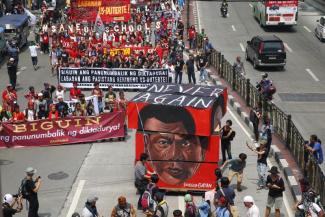
Rodrigo Duterte is the best president in the solar system, according to the US National Aeronautics and Space Administration (NASA). He is admired by Queen Elizabeth II who says, all world leaders should consult him. Bill Gates, the tech tycoon, is so impressed by how peaceful the Philippines has become under Duterte that he went to Manila to invest $ 20 billion.
Each of these statements is a crude lie. They are among a host of similar fabrications circulating on Facebook. All are presented as “news stories”, completed with spurious headlines, fake photos and quotations in fractured English. They often refer to misleadingly named websites, such as aljazeera-tv, bbc101.co.uk, dai1lymail or dw-tv3.
Tens of thousands of FB users like, promote and share these lies, which then wash up, like toxic detritus, on many Filipinos’ screens. There is nothing accidental or random about this flood. It is deliberately engineered, targeted and maintained with specific goals. The idea is to make Rodrigo Duterte look good, trash his critics and confuse the people.
Disinformation is nothing new in politics. “Fake news” is really just propaganda, something that has been around for centuries. But it is now supercharged by social-media platforms. Joseph Goebbels, the Nazi minister, could only have dreamed of this kind of instant delivery, around-the-clock availability and individual targeting.
Three things facilitate the rapid proliferation of fake news in the Philippines: mobile devices, Facebook and trolls. Today, most Filipinos have smartphones. Low-budget telecom subscriptions allow them to access the internet at any time, and Facebook is the most popular platform. The Philippines currently has 101 million inhabitants, 119 million mobile phone subscriptions and 47 million Facebook accounts, as the website www.rappler.com reports.
An unknown number of the Facebook accounts belongs to trolls – online personas who are the equivalent of stone throwing hooligans. In the early days of the internet, trolls were random unpleasant individuals who delighted in spoiling discussions and provoking anger. Today, however, paid agents lead organised armies of trolls. Some use bogus accounts to spread their vitriol; some use automated software programmes (“bots”).
Many people believe Donald Trump was the first populist leader with authoritarian leanings to win high office thanks to fake news. But six months before Trump won the presidency on November 2016, Duterte successfully rode on a tide of online disinformation to power. He polarised the electorate, tapping into feelings of fear, hatred and resentment.
Cyber assault
Reconstructing what happened, scholars and journalists have revealed how Duterte’s strategists mobilised trolls, manipulated public opinion and used stolen date to target individuals. They also relied on foreign consultants. One of them was possibly Alexander Nix, the infamous former head of Cambridge Analytica, the company that has been accused of stealing the personal data of almost 90 million Facebook users in support of the Trump campaign.
As Hong Kong’s South China Morning Post reports, Nix visited Manila in 2015 as the head of a Cambridge Analytica’s parent company, Strategic Communication Laboratories (SCL). He told the National Press Club: “The most powerful way to have elections is to have the people themselves campaign for you.” Instead of relying on surveys, campaign strategists should use data to influence personal behaviour. According to Nix, even “fundamentally flawed” candidates who might otherwise never win could use a strategy that would maximise their “likable traits”.
SCL claims to have successfully given advice to scores of candidates around the world. An SCL webpage, which has since been taken down, stated that one client was a Philippine candidate whom it advised to play up the character of a tough, no-nonsense leader who is hard on crime. Duterte was not named, but the description fits him. The National Press Club’s president, by the way, has since become Duterte’s undersecretary for communications.
In April 2018, Facebook revealed that Cambridge Analytica stole the private data of more than one million Filipino Facebook users. What exactly SCL and Cambridge Analytica did in the Philippines remains shadowy. That is true of another foreign group, which has been described as “Rumanian”. A campaign manager of another candidate said he was offered an automated system that used special software to monitor social-media activity, identify issues, mobilise supporters, spread content and even generate thousands of fake accounts. Everything would be managed from a high-tech command centre. That particular candidate turned down the offer but others might have accepted it.
Facebook however, is the multinational corporation that quite openly helped Duterte. The company trained the staffs of any interested candidates on how best to use the social-media platform. Duterte’s strategists eagerly accepted the advice. According to Bloomberg.com, the service was delivered by Facebook’s “global governments and politics team”. Headed by Katie Harbath, a former strategist of the US Republican party, this team taught political parties to set up campaign pages, create content and livestream events. It may also have sold advertising space.
Harbath said in an interview in 2016: “What we are trying to do is give users access, making them informed.” That is not how things turned out. Duterte’s strategists organised supporters in real-world and online groups that played two basic roles: they pumped out a steady stream of fake news and disinformation about Duterte and his opponents, and they harassed and intimidated any critics, dumping thousands of frenzied comments on any Facebook post that dared to criticise their candidate. The trolls did not necessarily want to convince everyone. Intimidation and confusion served their purposes too.
Facebook has proudly declared that 22 million Filipino users were actively engaged in the election campaign. Depressingly, this was not a laudable example of broad-based participation in a democratic process. Much of the activism was toxic and just spread disinformation.
A recent study by the Newton Tech4Dev Network concludes that the Duterte campaign did not only use volunteers and fans. It also relied on professionals from advertising and public relations. The Newton study adds: “Under Duterte’s presidency, ‘trolls’, or ‘Dutertards’ as his fanatic followers have been dubbed, are seen to have debased political discourse and silenced dissidents in their vociferous sharing of fake news and amplification of hate speech.”
Proudly calling themselves “cyberwarriors”, the troll hordes pushed the same unrealistic narrative during the campaign. According to it, the country’s existence was threatened by a dramatic drug crisis, and only Duterte could save the nation. Neither national nor international statistics provided any evidence for such a drug crisis.
Duterte was 70 years old at that time and known as a foul-mouthed ex-mayor of Davao City with links to death squads. But on Facebook he was painted as a diamond in the rough, a reformer who would fight drug syndicates as well as the established elites, including business oligarchs, politicians and the mainstream media.
Two years after he won the elections by a plurality of not quite 40 % of the votes, Duterte has not fulfilled his campaign promises. His main political initiative is an attempt to ram through a new constitution that would perpetuate his power (see my essay in D+C/E+Z e-Paper 2017/02, p. 31). The entrenched elites are still very much entrenched. The main beneficiaries of his regime so far seem to have been his cronies – among them the family of the late Ferdinand Marcos, a former dictator.
On the other hand, Duterte did promise to fill Manila Bay with the corpses of ten thousands of criminals and drug addicts. Indeed, the so-called war on drugs that he launched after taking office in June 2016, “has claimed an estimated 12,000 lives of primarily poor urban dwellers, including children”, according to Human Rights Watch. The killers apparently belong to death squads and the police force. Because of the many extrajudicial killings, President Duterte is now at risk of being tried by the International Criminal Court one day. Nonetheless, his popularity rating remains high, his trolls continue to infest Facebook, and the disinformation machinery continues to churn out content.
There has been some pushback. Belatedly, the Senate has held a series of hearings on fake news, but nothing has come out of it. Wikipedia has published a list of Filipino fake-news websites. Mainstream media, which chose to ignore the deluge of disinformation on Facebook, have slowly been reporting on fake news. Last year, Vera Files, an investigative reporting group in Manila, analysed 16 weeks of fake news activity and found the content clearly favoured two people: Duterte and Ferdinand Marcos Jr., son of the late, murderous deposed dictator.
Alan C. Robles is a free-lance journalist based in Manila.
twitter.com/hotmanila
Links
Newton Tech4Dev Network, 2018:
http://newtontechfordev.com/wp-content/uploads/2018/02/ARCHITECTS-OF-NETWORKED-DISINFORMATION-FULL-REPORT.pdf
Vera Files:
http://verafiles.org/
Wikipedia list of Filipino fake news websites:
https://en.wikipedia.org/wiki/List_of_fake_news_websites#For_Philippine_audiences
